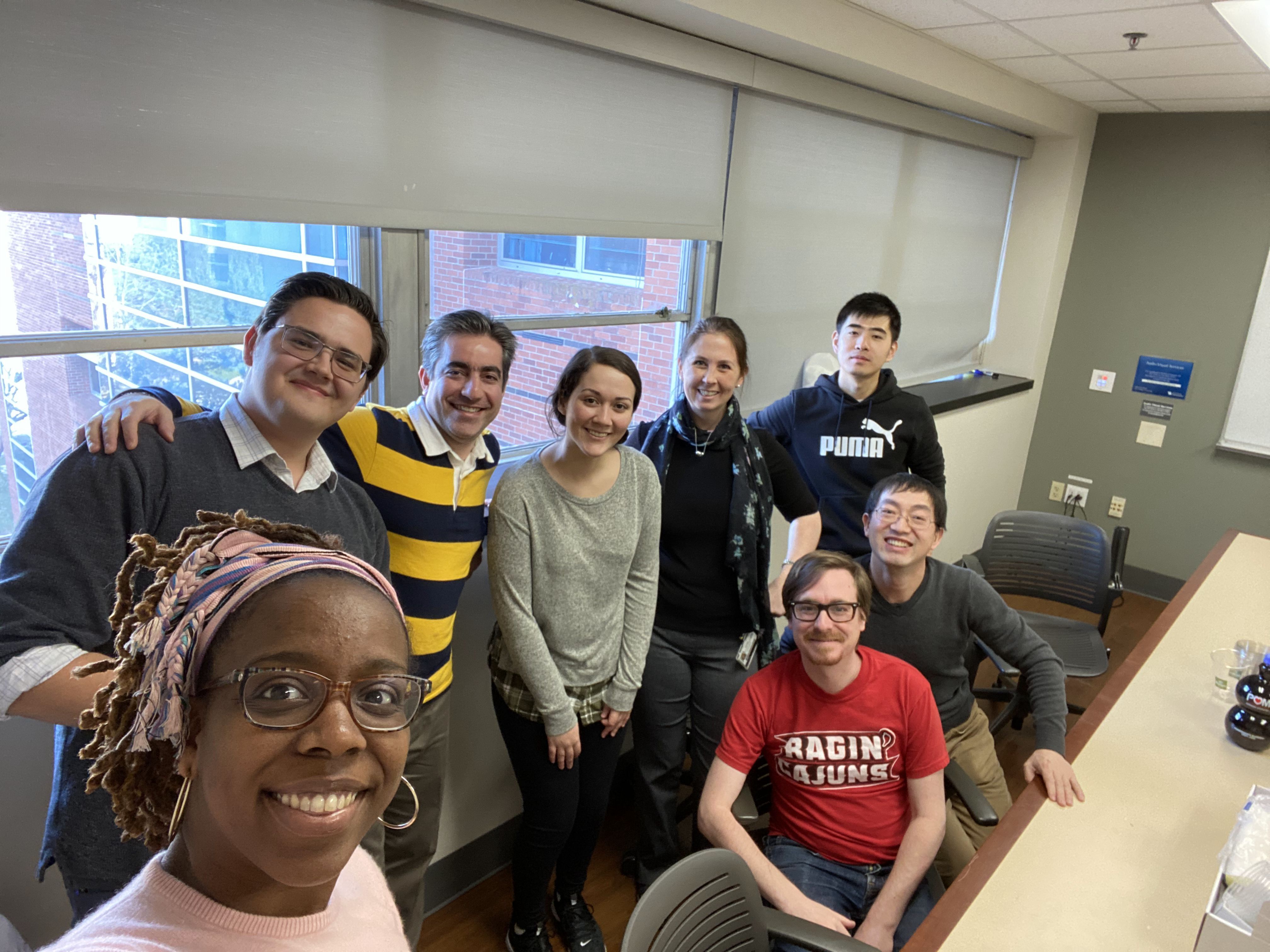Dr. Brainson's Lab Working to Make Lung Cancer Treatments More Effective
Lung cancer is a complex and devastating disease, especially in the Commonwealth. In fact, Kentuckians are twice as likely as the rest of U.S. citizens to develop squamous cell carcinoma and small-cell lung cancer, both of which are very serious cancers that typically have low survival rates.
Thanks to a pair of major grants, a laboratory with the University of Kentucky College of Medicine has garnered the resources needed to conduct groundbreaking research that could pave the way for more effective lung cancer treatment.
Christine Brainson, PhD, assistant professor of toxicology and cancer biology at UK, leads a team of seven researchers who last summer were awarded an R01 grant from the National Institute of Health (NIH) and National Cancer Institute (NCI) of $1,749,940, as well as an American Cancer Society (ACS) research scholar grant of $792,000.
“These grants focus on squamous lung cancers and adenocarcinomas that can take on some squamous characteristics, which are two predominate subtypes of lung cancer,” Dr. Brainson said. “Our job will be to understand on an even more detailed level which tumors respond to the treatments we are trying, and to find out how to know if a patient has that type of tumor.”
The R01 grant, titled “Targeting epigenetic heterogeneity to improve lung cancer immunotherapy response,” is a five-year award geared toward increasing likelihood of patient response to immunotherapy by testing a combination of the immunotherapy with a second drug, an epigenetic inhibitor. Despite immunotherapy’s capability of curing patients with late-stage tumors, currently only about 20 percent of patients with squamous lung tumors have a durable response to immunotherapy longer than two years. At two years, the survival rate is about 30 percent. This is, however, distinctively higher than chemotherapy.
The grant will involve characterizing the immune cell changes that happen in tumors treated with the combination of immunotherapy and epigenetic inhibitor. Dr. Brainson’s lab has been pursuing this aspect of the work in an experimental model, and also in Kentucky patient samples with the Markey Cancer Center’s Drs. Zhonglin Hao and Thèrése Bocklage.
“Comparing the results will allow us to understand what changes happen in the immune cells when immunotherapy is working well versus when it fails,” she said.
Meanwhile, the ACS grant is focused on effects of methionine – an amino acid found in foods such as meat, fish, and poultry – and its correlation to the subtype of lung cancer each patient has. The grant, “Determining the contribution of cystathionine beta synthase to lung cancer lineage fate,” will work to determine whether methionine metabolism is a key driver of lung cancer subtype and can make tumors better or worse prognosis by rewiring their DNA organization. An extension of this work is to use methionine metabolism as a way to sensitize lung tumors to chemotherapy.
“No two lung cancers are exactly alike,” Dr. Brainson said. “Therefore, having different strategies makes sense, as some strategies will work better for some tumor types.”
Dr. Brainson has maintained an interest in cancer research throughout her career. A Massachusetts native, her experience includes training at Dana-Farber Cancer Institute in Boston, as well as a postdoctoral fellowship at Boston Children’s Hospital. She joined UK’s department of toxicology and cancer biology in 2016.
The overall goal of Dr. Brainson’s lab at UK is to define precision medicine opportunities for genotype- and subtype-specific lung cancer by using ideas and techniques from stem cell biology and epigenetic research.
The lab is presently working to generate and evaluate data related to its two recent grants, which both began on July 1, 2019. Dr. Brainson's next plans are to begin work on manuscripts describing the results so that the research can be presented at larger meetings.
